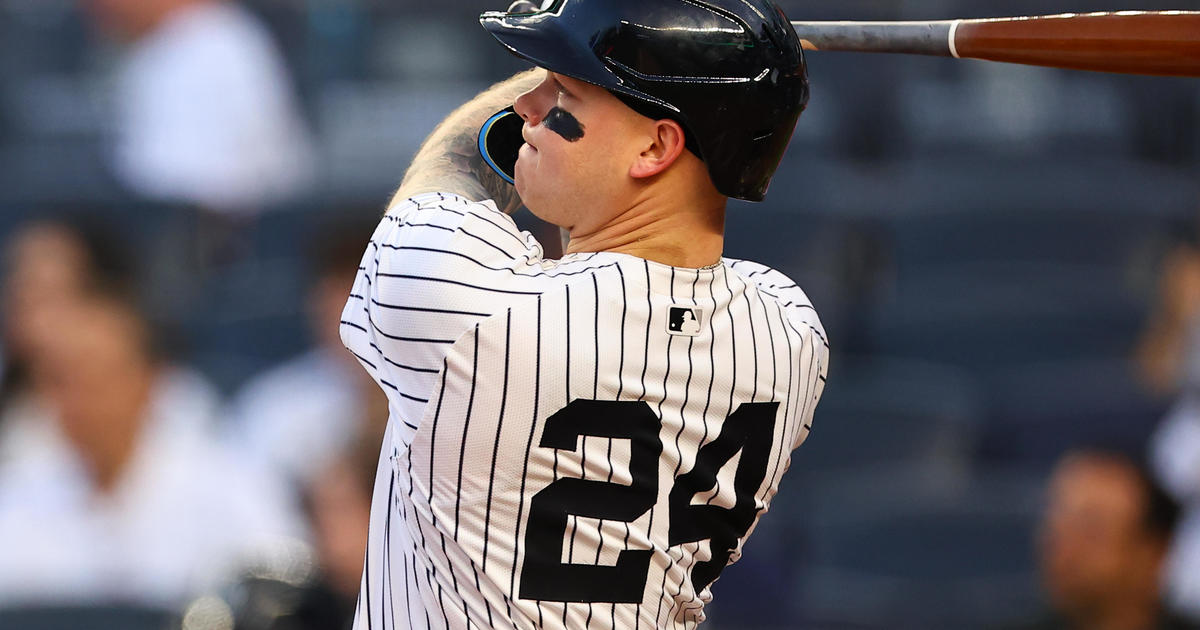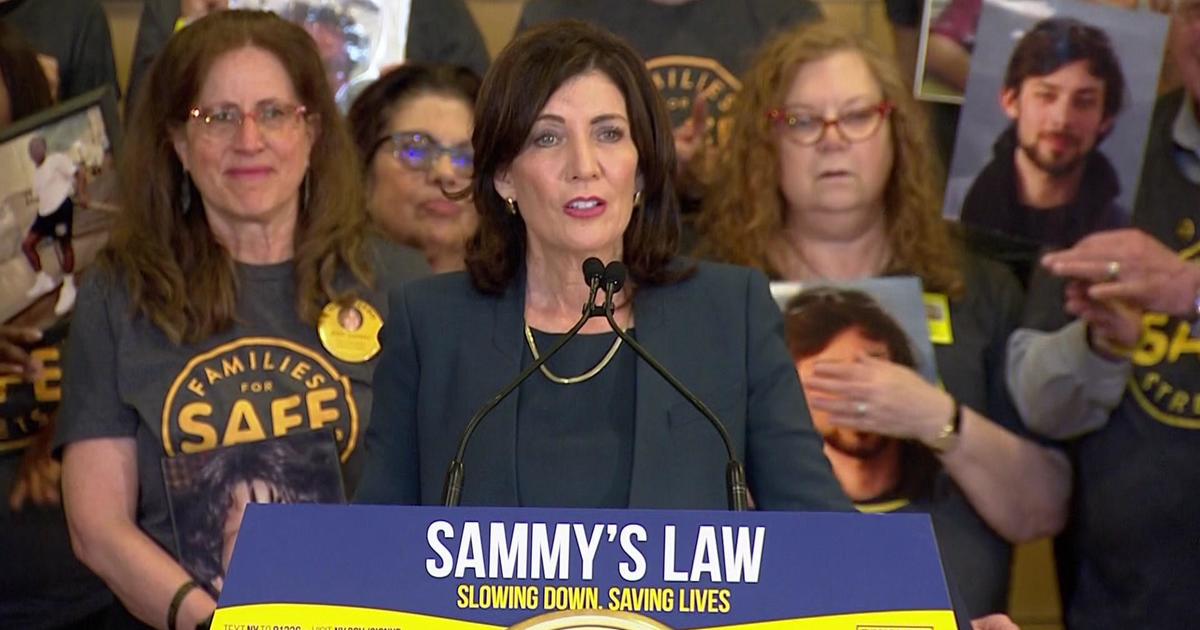Jets' Robby Felix Hopes To Win Job 3 Years After Stroke
FLORHAM PARK, N.J. (AP) — Robby Felix was in a hospital bed nearly three years ago when he heard the four words that still seem unbelievable to him.
"You had a stroke," the New York Jets offensive lineman recalled being told by doctors.
It was a stunning diagnosis for a guy who was 22, had just played his last home game for the University of Texas-El Paso and was hoping to be among the top centers taken in the 2009 NFL draft.
"I knew strokes were for, like, old people and that they're pretty bad," Felix said. "But I never knew how bad."
Until that day in November 2008, when Felix stepped into the shower at his home two hours after the Miners beat SMU.
"The right side of my body went completely numb," he said. "I kind of blacked out, but caught myself somehow. I couldn't speak and I was just like, 'What the heck is going on?'"
Scared, he balanced himself on one leg, hopped out of the shower and managed to get to his wife, Kelly, who called 911. Felix stayed in the hospital for six days and underwent a battery of tests, unable to walk or talk.
"I didn't think I'd ever play football again," Felix said. "That's what the doctors said. Just to be at this point of where I am right now is pretty incredible. That was a pretty tough time in my life. It just kind of happened out of nowhere."
Today, Felix is hoping for a chance to stick with the Jets as a backup lineman and possibly fill the role vacated by Rob Turner, who broke his right leg in New York's preseason opener at Houston. He spent last season on the Jets' practice squad and will get an opportunity to further prove himself Sunday against Cincinnati as Nick Mangold's backup at center.
"When Rob went down, Robby just jumped right in there, like it was no big deal," coach Rex Ryan said. "You look at what he's been through in his life, it really is no big deal."
For about a year after the stroke, Felix thought about it all the time — especially when he took a shower.
"I'd have phantom symptoms," he said. "You know, like when you close your eyes and wash your hair, you kind of get unbalanced and I'd think 'stroke' every time."
Felix said doctors were never able to pinpoint what caused the blood clot in his brain. He felt fine during the SMU game. Felix wonders if all the ibuprofen he was taking for chronic shin splints was a factor.
Today, he has no residual effects from the stroke. He must take one aspirin tablet each day and stay well-hydrated as part of his daily regimen. Felix was told there's no guarantee he won't have another stroke, but that possibility is far from his mind now.
"This is my third camp and every day that goes by just pushes it further and further away," he said. "I just thank God for giving me this opportunity to be able to walk and talk and play football again."
At first, Felix could understand when people spoke to him, but he was unable to respond.
"I'd sit on the bed and just keep falling over to the right and I couldn't do anything about it," he said. "When I felt my arm, it was like I was touching someone else's arm."
The agents who once called him all the time stopped completely — except for former NFL lineman Billy Conaty, who Felix later hired.
"When he would call me, I would have to go sit in my room and turn everything off, stare at the floor and focus on what I wanted to say," Felix said. "It was broken English."
Car rides were a bit more interesting, too.
"My wife would be driving and I would read random signs out loud," he said. "I'd just blurt out things like 'Speed Limit: 25 mph' and 'No Left Turn.' My brain, I don't know what it was doing."
Felix went to a speech therapist, and he would read to his wife every night before he went to bed. He also drew inspiration from Tedy Bruschi, the former New England Patriots linebacker who suffered a stroke but returned to play again. Felix spoke to Bruschi several times and even read his book, getting through each sentence written by someone who had been where he was.
Felix also needed to regain control of his body. Despite everything he went through, Felix was determined to go to the NFL combine in Indianapolis, a mere three months after his stroke. He went to the TEST Football Academy in Martinsville, N.J., where trainer Brian Martin worked closely with him.
"We had to start him with obvious baby steps," Martin said. "When he came in, he could barely bench the bar. We were working a lot on his balance. The first four weeks or so, we were going to keep him in a separate group from our elite guys getting ready for the combine. But by the second week, Robby was sneaking into that group and we had to keep kicking him out."
The progress Felix made in eight weeks was remarkable, as he started to resemble the guy who anchored UTEP's offensive line. Martin said Felix was "probably a 1 or 2" on a scale of 1 to 10 when he first arrived, but left "as an 8 or a 9."
Felix, whose daughter Brooke was born while he was recovering, made it to the combine and drew terrific scores. But he went undrafted and heard from no teams for weeks. He was planning to work a construction job in California when Baltimore signed him.
He was among the Ravens' final cuts, but won a championship with Las Vegas of the United Football League. Felix got another chance at the NFL last September when the Jets signed him to their practice squad a few days after cutting him. He's back again this summer, looking to make the active roster.
"Oh my God, if you can't root for Robby Felix, you can't root for anything good in life," Martin said. "I wouldn't ever count him out and I'll tell you what, if I'm going to war, I want that guy in my foxhole."



